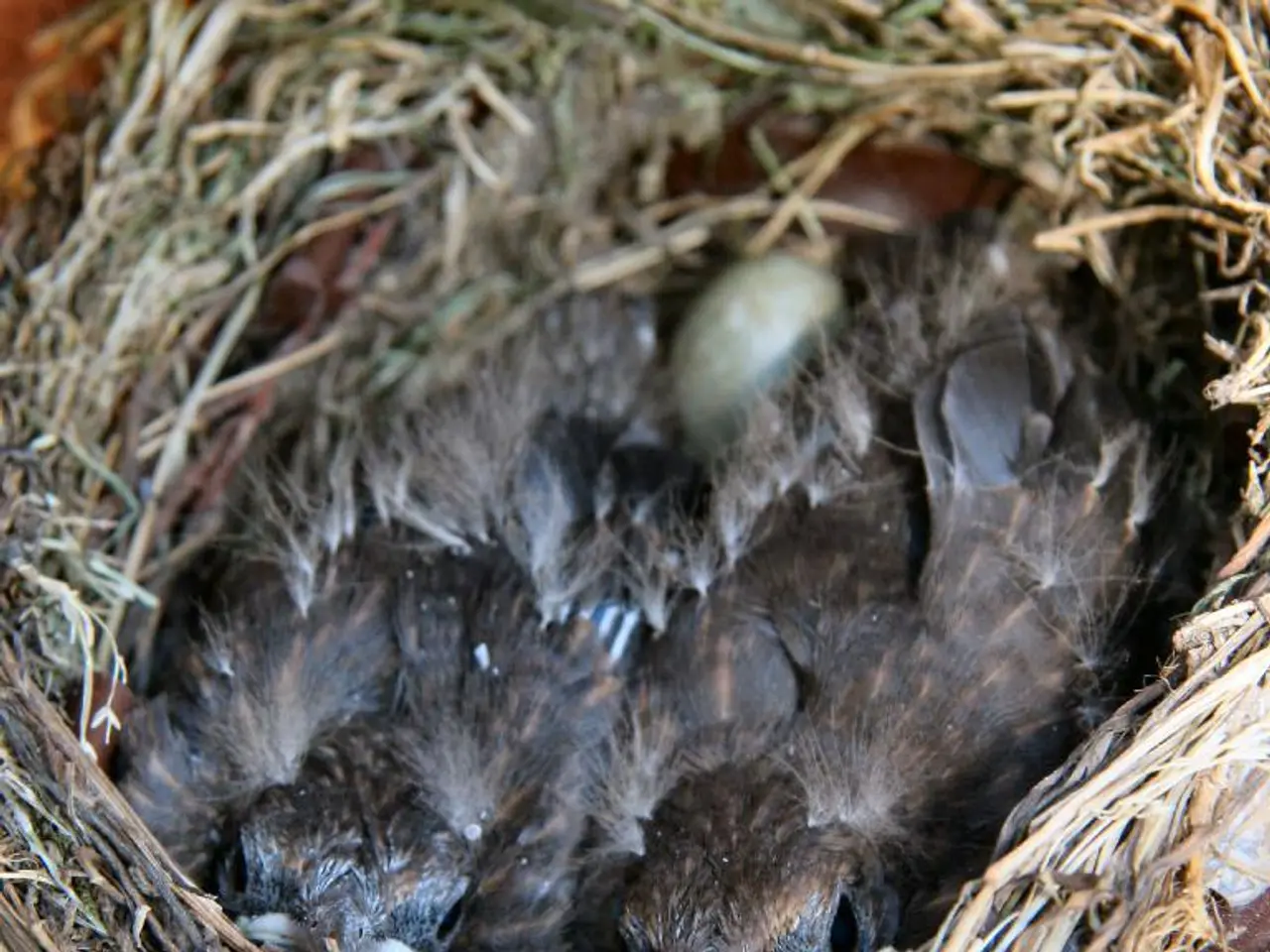Guide to Identifying, Assisting, and Nurturing Young Avian Offspring
Baby birds, also known as nestlings or chicks, undergo several stages of growth as they develop from hatchling to fledgling. These stages are crucial for their survival and independence.
The Nestling Stage
In the nestling stage, which typically lasts from Day 1-7, the baby bird is growing quickly in the nest, developing feathers and strength, but cannot yet fly. It depends fully on parents for food and protection. At this stage, nestlings learn essential survival skills while parents care for them closely.
If you encounter a featherless or few-feathered baby bird on the ground, it is likely that the nest has been disturbed. If the nest is accessible, gently return the bird to the nest if possible. If the nest is lost or inaccessible, contact a wildlife rehabilitator. Avoid handling excessively and keep pets/people away.
The Fledgling Stage
By Day 15-25+, a baby bird enters the fledgling phase, learning to fly, practicing hopping and flapping, and starting to eat a bit of food themselves. Although it leaves the nest, it stays near parents for feeding and protection. This is a critical learning period for flying and exploring.
If you find a fully feathered but awkward flyer on the ground or nearby tree, it may appear abandoned but usually is being cared for by parents nearby. Do not disturb; allow time for parent birds to continue feeding and teaching fledglings flight skills. Only intervene if the bird is injured or in immediate danger.
The Juvenile Stage
The young bird can fly and is more independent but is not fully mature or sexually grown. It molts into more adult-like feathers and develops social and foraging skills. Juveniles are more vulnerable to predators during this time. Observe quietly without interference. If injured, contact a rehabilitator.
Special Considerations for Precocial Birds
Some species, like precocial birds (e.g., quail, plover), hatch with open eyes and the ability to walk/forage almost immediately but still need parental protection and guidance on food. Avoid disturbing them or their parents, and keep pets away.
Feeding a Baby Bird
Baby birds eat a high-protein diet, similar to what their wild parents would offer them, such as insects, worms, or regurgitated food. Post-fledging birds are normally fed and guided by parents for a number of weeks. Avoid feeding a baby bird milk, bread, or birdseed as these can be dangerous and even fatal. Softened dog/cat kibble, mashed hard-boiled egg, or mealworms can be fed to a baby bird.
What to Do if You Find a Baby Bird
If you find a baby bird, assess the situation, try to reunite it with its nest if possible, and get in touch with a wildlife rehabilitator if it seems injured or abandoned. If a baby bird falls out of the nest, it may need to be returned to its nest or a makeshift nest should be created. During the nestling stage, baby birds start to preen and stretch wings.
In summary, the general rule is: for featherless nestlings, try to return them to the nest or seek help; for fledglings and juveniles, leave them alone unless injured or in danger, as parental care is ongoing at these stages.
Read also:
- Rehabilitation Centre of NHS Introduces Smart Bedside Screens Equipped with Airwave Technology
- Effects of Insects and Vermin on the State of Residential and Commercial Buildings
- Following the cancellation, a new demonstration date for Laumann's show in Hamminkeln has been announced.
- Quick Relief in a Snap (Negative Thoughts Not Required)





